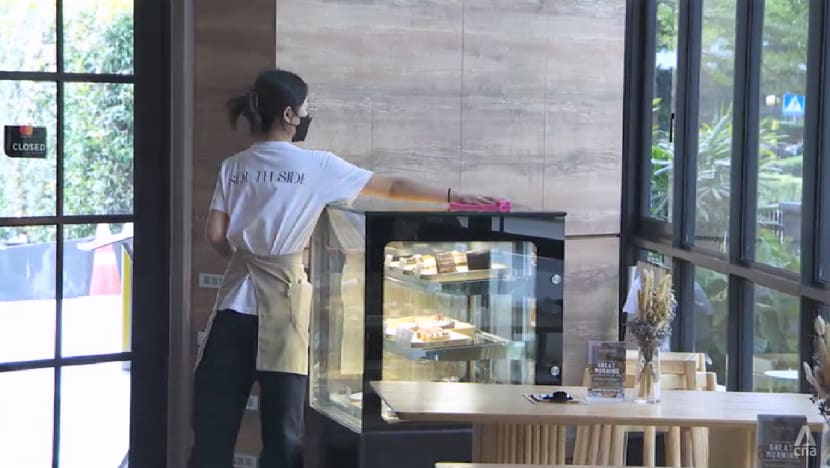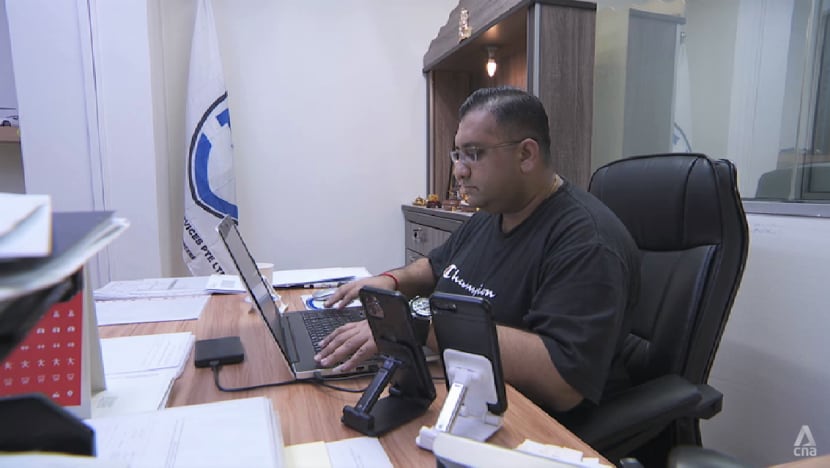Some firms concerned about higher business costs when updated local qualifying salary scheme kicks in
The move may also impact the working hours for many part-timers, according to industry watchers.

Cafe South Side Keppel has been struggling to hire enough staff. When the local qualifying salary is raised later this year, it expects to see its operating costs go up.

This audio is generated by an AI tool.
SINGAPORE: Some employers have raised concerns over the upcoming increase in the local qualifying salary (LQS), noting that it could add to rising business costs.
The move may also impact the working hours for many part-timers, according to industry watchers.
The LQS is the minimum salary that employers hiring foreign workers need to pay their local workers.
Last Friday (Feb 16), Deputy Prime Minister Lawrence Wong announced in his Budget speech that companies that hire foreign workers will be required to pay locals more to keep pace with wage growth.
The local qualifying salary (LQS) for full-time workers will be raised from S$1,400 (US$1,040) to S$1,600 from July this year. The minimum hourly rates will increase from S$9 to S$10.50 for part-time workers.
A company’s foreign worker quota entitlement will be computed based on the number of local workers being paid the new qualifying salary.
BUSINESSES FIND WAYS TO PAY HIGHER SALARIES
Businesses said they will have to find ways to give their workers higher salaries.
Cafe South Side Keppel, for instance, has been struggling to hire enough staff. When the LQS is raised later this year, it expects to see its operating costs go up.
“Most of the people that will be affected will be part-timers,” said Mr Shaun Leong, managing director of The Hey Co, which runs the cafe.
“So for the part-timers, either they have to work more hours for us to achieve the targets for the LQS, or we can find ways to pay them a little bit more by per hour, which also means that we will find ways to give them more responsibilities and more ways of earning their higher salary.”
However, most of its part-time staff are unable to put in the additional hours.
The firm said the higher hourly wages for its workers may be passed on to its customers.

Human resource experts said companies may make their employees work more in order to hit the new requirement.
The increase in the LQS is expected by most HR professionals, said Ms Juliet Tan, founder of customer engagement platform Emplifi.
“However, this increase to S$1,600 is directly contradicting FWA (flexible work arrangement) flexi-load requests, which would impact part-timers the most,” she added.
“Part-timers who work two days or employees that request for two days will not meet S$1,600 minimum LQS, which gives employers the reason to reject the FWA requests.”

RAISING SALARIES OF LOWER-WAGE WORKERS
However, not all businesses are facing the same issue.
“The majority of businesses today are already paying above S$1,600. Even the per-hour rate is above (the minimum rate),” said Mr Hareenderpal Singh, managing director of HRS Security Services.
“Businesses that will be affected are more of those micro-SMEs (small- and medium-size enterprises).”
The security service firm is hoping to benefit from other Budget measures to help raise the salaries of lower-wage workers, such as the S$1 billion top-up to the Progressive Wage Credit Scheme (PWCS) that was announced by Mr Wong on Friday.
The scheme encourages companies to raise the salaries of lower-wage workers by co-funding the increase.
In 2025 and 2026, the government will also raise the wage ceiling to qualify for co-funding from S$2,500 to S$3,000.
Most employees in HRS Security Services will now qualify for the cost-sharing initiative.
“Under the previous PWCS scheme, the majority of the security officers, making up about 70 per cent, would not have qualified,” said Mr Singh.
“But right now, with the new enhancement, we now have this group that is covered over the next couple of years, and we will therefore be able to better manage our business costs.”
The company said that the enhanced measure will help it cut costs, and some of the savings may also be passed on to its customers or go towards training programmes.
“The security sector right now is going through a major push for the use of technology,” said Mr Singh.
“So we need subsidies, or whatever savings that we can have can then be channelled to train our security officers (and) our workers to better use technology to enhance their productivity, and that will overall lead to better outcomes.”


















